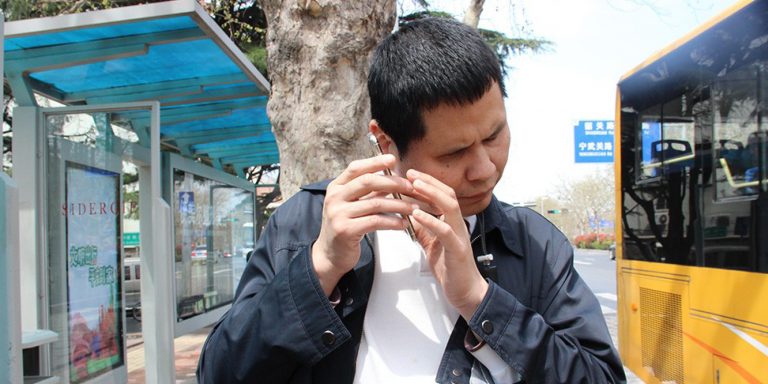
At the 49th session of the Human Rights Council, which took place from February 28 to April 1, Gerard Quinn submitted a report including a study on artificial intelligence and the rights of people with disabilities. According to him, if AI can present enormous assets for disabled people, its discriminating effects can have consequences on their rights. He therefore stresses the urgency of “ launching a debate on the risk/opportunity ratio of artificial intelligence in the context of disability.”
Article 1 of the Universal Declaration of Human Rights, adopted by the United Nations General Assembly in 1948, states, “All human beings are born free and equal in dignity and rights. “ Freedom from discrimination, as stated in Article 2, is what guarantees this equality.
To ensure that persons with disabilities can fully enjoy their rights without discrimination, The Human Rights Council established the mandate of Special Rapporteur on the Rights of Persons with Disabilities in 2014 which aims to strengthen efforts to recognize, promote, implement and monitor the rights of persons with disabilities. Gerard Quinn has served under this mandate since October 2020.
Gerard Quinn’s report on the rights of persons with disabilities
According to the report, while there is widespread interest in the topic, there has been little detailed assessment of the direct benefits and potential harms of artificial intelligence for people with disabilities, of whom there are nearly one billion worldwide. However, national human rights institutions are beginning to focus on the human rights risk/potential ratio of artificial intelligence systems and their use.
Gerard Quinn states:
“New technologies can be extremely beneficial to people with disabilities and stimulate the pursuit of inclusive equality in a wide range of areas such as employment, education and independent living. However, there are many well-known discriminatory impacts. “
There is a growing awareness of the problems that these new technologies may pose from a human rights perspective, some of which, however, are borne exclusively, or differentially and disproportionately, by people with disabilities.
The debate must therefore focus more specifically on their impact on the rights of persons with disabilities as established in the Convention on the Rights of Persons with Disabilities, including the rights to privacy, autonomy, education, employment, health, independent living and participation.
The positive effects of AI for people with disabilities
Artificial intelligence systems are an asset, especially in the area of assistive technology. Gerard Quinn pointed out that “barriers that we once thought were insurmountable are suddenly measurable. “
He points to AI-based navigation tools that enable blind or visually impaired people to get around, eye-tracking and speech recognition software, which enable people with disabilities to access information and education, communicate and transmit information. Adaptive learning platforms thus meet the special needs of students with disabilities.
He also pointed out the usefulness of speech-to-text software that
the chronic shortage of sign language interpreters and make it possible for people with
people with speech impairments to interact with others. Avatars that translate speech into sign language for people who are deaf or hard of hearing have recently been created.
AI systems can also help improve the situation of people with disabilities by diagnosing illnesses, determining treatments and providing home care. In addition, artificial intelligence is beginning to be used in the mental health field.
Algorithms that discriminate against people with disabilities
While AI can help people with disabilities live more independently, Gerard Quinn points out that algorithms rely on data sets that often include ” data from past decisions and value judgments made by human beings-decisions and judgments that can be fallible in many ways.”
As a result, these tools can carry human biases and thereby exclude people with disabilities. The report cites the employment sector as an example, where recruitment processes increasingly rely on algorithms to screen applicants.
Gerard Quinn explains:
“The data underlying artificial intelligence algorithms can reflect and incorporate ableist (and ageist) biases. Disability may be ‘perceived’ by the technology as deviant and therefore undesirable People with disabilities may not be considered for a position without even considering their merits and the possibility of making ‘reasonable accommodations’ that allow them to perform the essential functions associated with that position. “
Putting the human rights of people with disabilities at the heart of the debate on new technologies
For Gerard Quinn, the unprecedented power of artificial intelligence can be harnessed for people with disabilities, and the tremendous advances in humanity must be harnessed so that the most disadvantaged people can finally benefit fully from science and its advances.
The solution, he says, to realizing the tangible benefits of AI for people with disabilities is to place their human rights at the center of the debate on new technologies.
He calls on states to include disability in their AI strategies and to emphasize the obligation to make “reasonable accommodations ,” as well as to explicitly consider disability when purchasing products and services based on artificial intelligence.
He adds:
“Most importantly, we call for the creation of a new space – a collaborative space – between the business sector, government, and civil society to explore and realize the benefits of these technologies and take concrete steps to reverse some of its known negative effects and avoid such effects in the future. “
He concludes:
“Otherwise, the most excluded people will have no chance of getting ahead. Given the possibilities of this technology, that would be a tragedy for humanity. “









